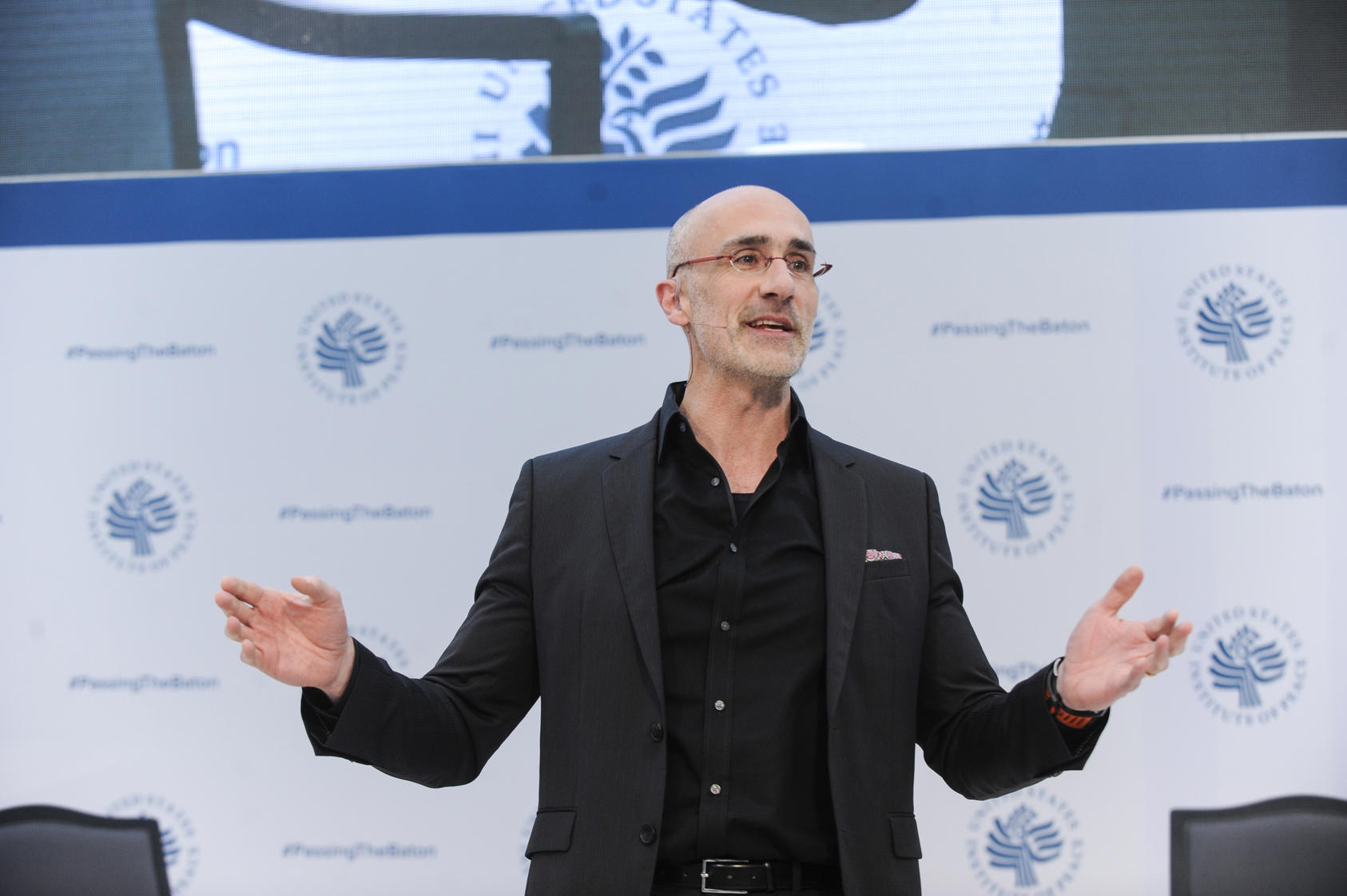'Political Peace' Is Possible, Says AEI President
Passing the Baton Recap: 'Rethinking the Roots of Populism' by Arthur Brooks
Arthur Brooks, an economist and musician who is president of the American Enterprise Institute, said the cause of the current U.S. political rifts has been misdiagnosed and outlined a prescription for achieving “maybe the most elusive kind of peace of all around the world today.” In a presentation at Passing the Baton, a conference at the U.S. Institute of Peace that was co-sponsored by his think tank and four others, Brooks declared, “Political peace is possible.”

“The reason we have so much political animus is not anger; there’s always been anger. It’s contempt,” Brooks said at the Jan. 10 conference. “Contempt, according to social psychologists, is defined as the utter conviction of the worthlessness of another person. That is the perfect way for you to make a perfect enemy.”
The way to “political reconciliation and peace,” he posited, is to “cure” ourselves of contempt. But the answer isn’t for everyone to agree or to try to take politics out of decision-making. That would create an “undemocratic atmosphere” in which “bureaucrats run everything,” he said.
“That creates more contempt and more anger and more contention from the citizens,” Brooks said. “Don’t believe it? Look at the torches and pitchforks all over Europe today. It has to do with the fact that people don’t feel like they are being heard.”
Instead, he said, we must “learn to disagree better.”
“None of us wants to live in a one-party state,” Brooks said. “We want a vital competition of ideas. … We need people with whom we disagree.”
He cited inspiring figures who contributed to his epiphany. They included the Dalai Lama, with whom the American Enterprise Institute has had a long association to discuss issues such as the ethics of a free enterprise system, and Dale Carnegie, the author of the perennial bestseller How to Win Friends and Influence People, first published in 1937.
“You read it in high school. Go back and read it again. It’ll change your life,” Brooks advised.
The Dalai Lama, who also has worked with USIP to strengthen young activists working for peace in conflict zones, recommends overcoming contempt with “warm-heartedness,” Brooks said. That initially sounded too pat, but then Brooks recalled all that the Dalai Lama has endured in his life, including being forced into exile as a teen in the face of repression in China. Yet he has become perhaps the most respected religious leader in the world.
“Warm-heartedness isn’t for sissies,” Brooks said. “Warm-heartedness is for strong people.”
Brooks relayed an incident when he first published a book that became popular and began receiving an onslaught of critical email. One man in Texas wrote, “Dear Professor Brooks, you are a right-wing fraud.” It was 5,000 words “refuting every single point in my book, chapter and verse.” Yet Brooks decided that, rather than strike back in outrage, he would simply thank the writer for reading the book.
Fifteen minutes later, the writer replied and invited Brooks to dinner the next time he was in Dallas. The response, Brooks said, demonstrated the power of knowing “how to turn that situation around,” and can be replicated in politics “to achieve political peace.”
“If we think differently, as leaders, and we act differently, and we show these values, then a better political future is possible in our countries,” he said. “And it starts with us.”



